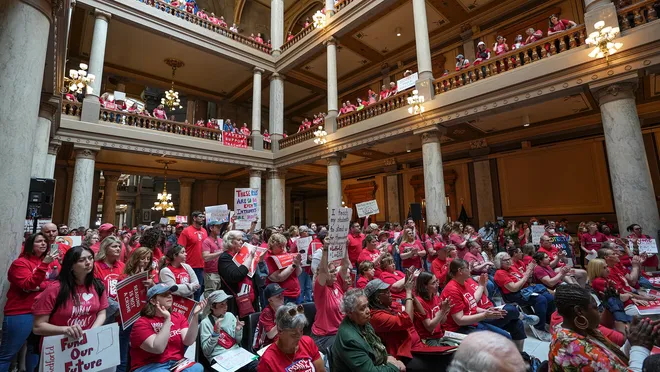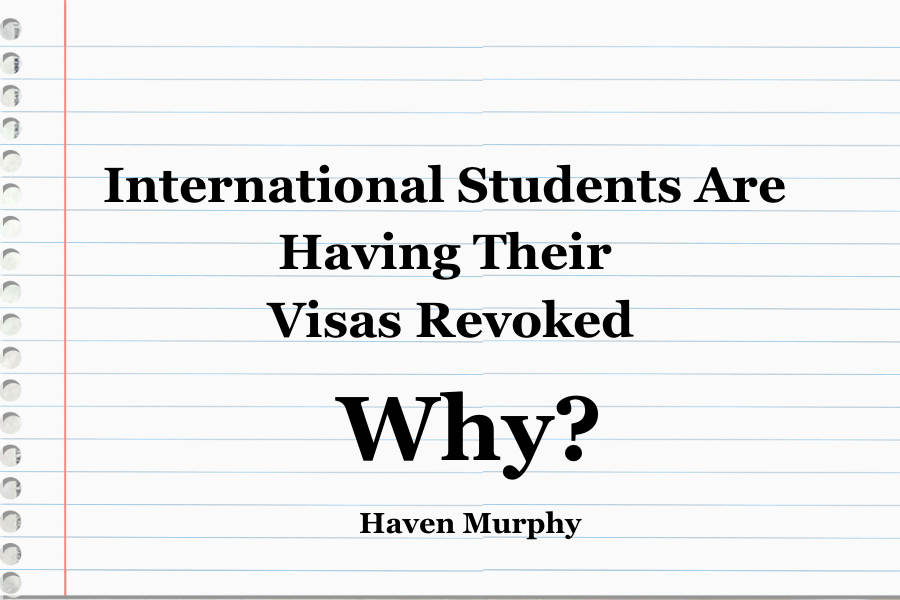During the 2023 Indiana General Assembly, Indiana House Bill 1447 was signed into law- an education bill that bans vaguely defined “harmful materials” from school libraries. As a draft, the bill’s original aim was to provide guidelines for the ways in which third-party vendors could conduct research in schools. Behind closed doors, the wording was changed to lump literature described as “harmful to minors” and put into the same category as that of already banned books. The legislation was then easily rushed through Indiana’s Republican dominated House and Senate within five hours, ironically becoming official in the middle of National Library Week. The bill requires school libraries to post catalogs of books offered and provide a procedure for anyone to contest a book they deem to be “inappropriate”. In combination with the 2022 Senate Bill 12, which strips educators of the ability to use educational value as a legal defense, the legislation will prove to be lethal to the diversity of literature available to students. Librarians found in violation of this law can be charged with a Level Six felony (the same charge one might receive for crimes like auto theft, strangulation, domestic violence, and arson) and risk up to two and a half years in jail and $10,000 in fines. In anticipation of this, librarians across the state are avoiding books that are more likely to prompt parental contestation; books that highlight marginalized or underrepresented groups make up a large percentage of this number. Instead, they gravitate towards the safe books, the same books that have been used for decades- leaving students exposed to curricula composed almost exclusively of literature written by white men.
With the passage of House Bill 1447, literary censorship has increased across the board. One of the biggest problems libraries face is book banning groups like Moms for Liberty and MassResistance that aim to remove in bulk books with “divisive concepts”. The Center for American Progress found that 41% of banned books have protagonists or prominent secondary characters who are people of color, 22% directly address race and racism, 16% are histories of biographies, and 9% have themes of rights or activism. A similar study conducted by Harvard researchers showed that 45.5% of books banned in 2022 were written by or about people of the LGBTQIA+ community. As a result, the majority of people upon which the remaining literature is spoon-fed are not the people written about. A lack of exposure on all walks of life discourages individuality and cultivates shame around non-white and queer identities, pushing us one step closer to a white-washed world. The criminalization of literature highlighting stories of diverse characters removes crucial opportunities for conversation and learning. With no other perspectives available, students will be forced to fill in the blanks by constructing false narratives, continuing the epidemic of misinformation infecting our country.
The new book banning legislation strikes especially close to home, as our very own John Adams High School has 65% minority enrollment. Sitting idly by as our own government works to isolate non-white, non-hetero communities is not an option- change needs to happen, and happen quickly. Don’t let the silencing of already underrepresented voices go unnoticed- go to school board meetings, read and talk about banned books, write to state representatives, or support a local bookstore.









